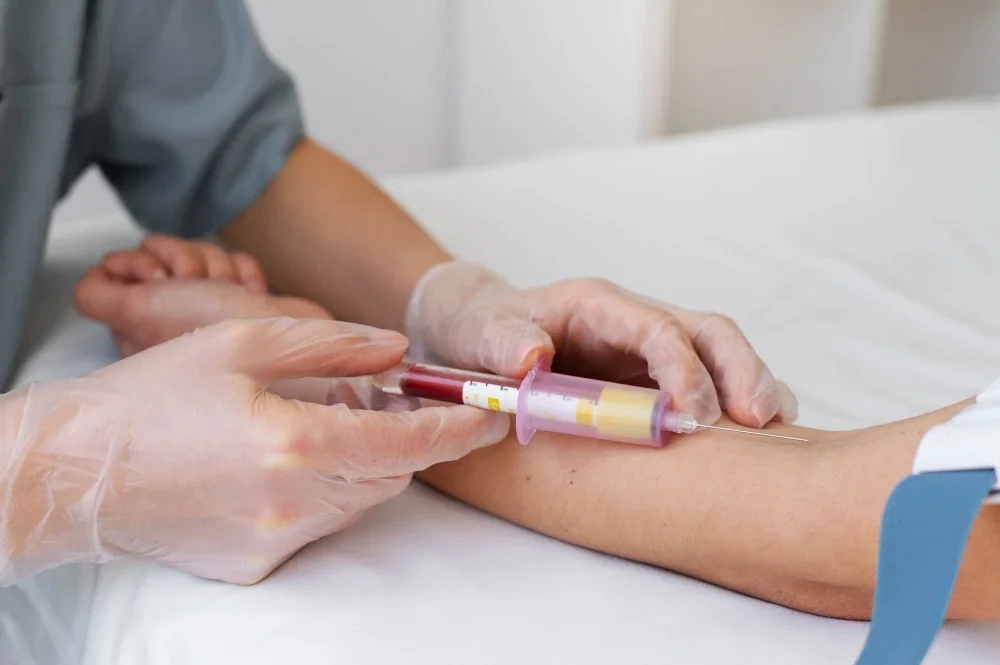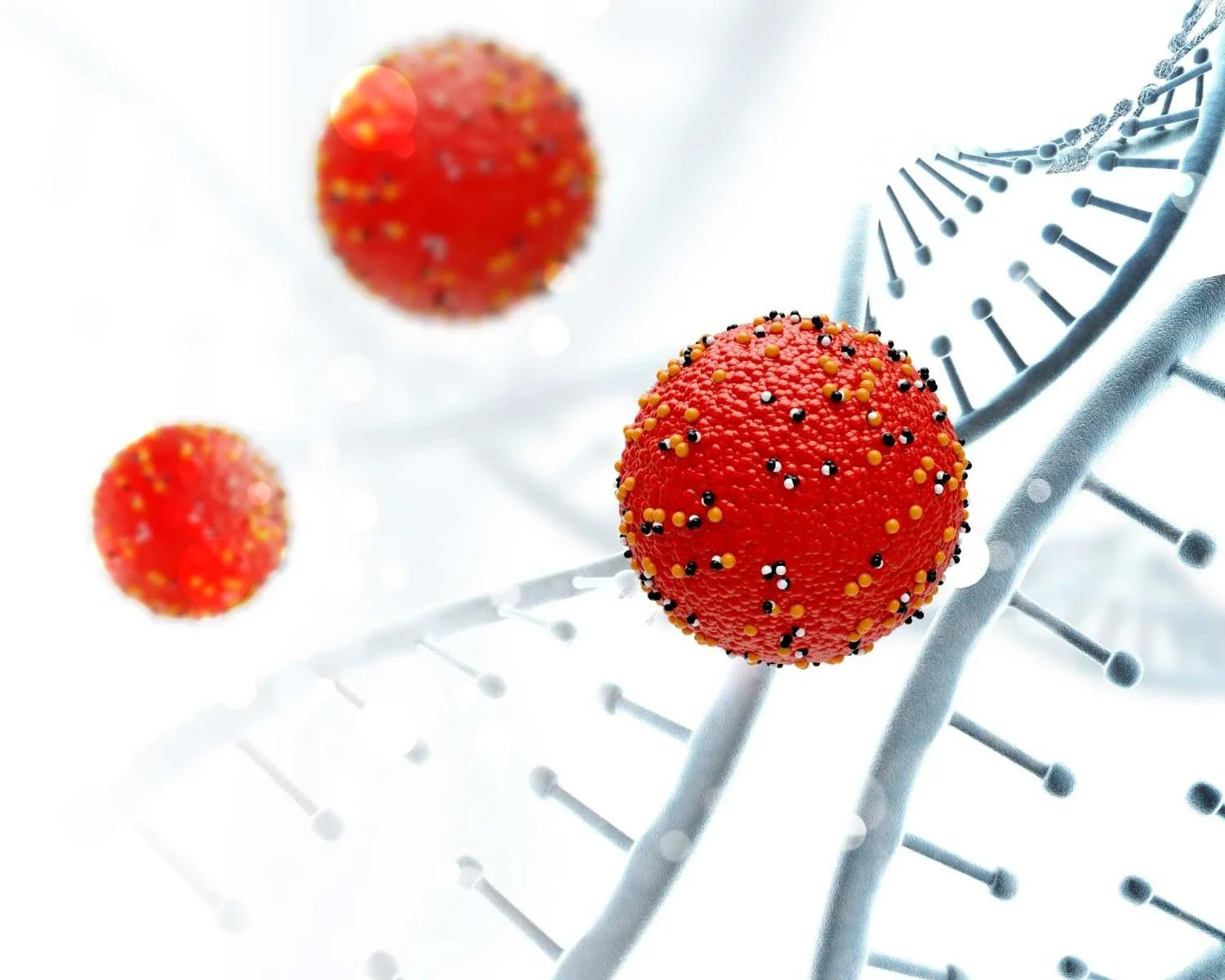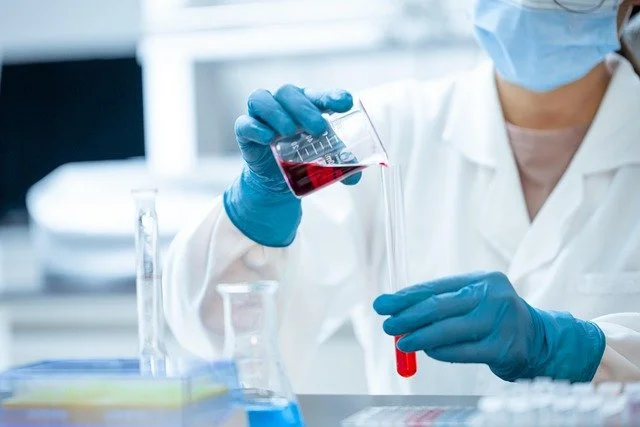PCOS Diet for Indian Women: What Really Works According to Doctors
PCOS is one of the most common health problems that young women have these days. Women often notice irregular periods, weight gain, and hormonal imbalances at first, but the real problem is usually deeper and has to do with their lifestyle, metabolism, and how their bodies process insulin. Doctors all over India stress one important thing: nutrition is very important for managing PCOS, often more so than just taking medicine.
At first, a lot of women find PCOS to be confusing. Some of the signs are acne, hair loss, mood swings, sugar cravings, and tiredness. Some people have trouble with their hormones but stay thin, while others keep gaining weight. Because PCOS is different for everyone, the right diet becomes a personalised, long-term plan that can lead to big changes. Women can naturally take charge of their health by knowing how diet affects hormones.
A doctor talks about how changing a patient's diet can lower inflammation, control insulin, and keep hormones in balance when they are looking at their PCOS symptoms.
A young woman sits comfortably while enjoying a fresh bowl of salad, reflecting a healthy and balanced lifestyle. Her relaxed posture and nutritious meal visually represent the importance of clean eating in managing PCOS, supporting the message of adopting doctor-recommended dietary habits.
Recognising PCOS and the Importance of Diet
Polycystic Ovary Syndrome (PCOS) is a hormonal disorder that happens when the ovaries make too many androgens, which are male hormones. This messes with ovulation, changes metabolism, and makes cysts grow. Doctors say that one of the main reasons for PCOS is that the body doesn't respond to insulin. When the body stops responding to insulin properly, the symptoms get worse, hormones get out of balance, and blood sugar levels go up.
For this reason, getting the right nutrition is very important. Food has a direct effect on insulin levels, inflammation, energy balance, and hormone function. Choosing the right foods and eating them the right way can make it much easier to deal with PCOS symptoms every day.
Common Signs of PCOS in Indian Women
Most women have a mix of symptoms. Some of the most common signs are: periods that are irregular or don't happen at all; gaining weight, especially around the stomach; acne and oily skin; too much facial hair or hair loss; feeling tired or low energy; mood swings or anxiety; not being able to lose weight even though you're on a diet; and wanting fried or sweet foods.
If these symptoms don't go away, you need to see an endocrinologist or a gynaecologist. Diet is the first step towards feeling better, but medical advice is what will keep you feeling better in the long run.
The Foundation of a Diet Appropriate for PCOS
Doctors say that people should focus on foods that lower inflammation and keep insulin levels steady. This doesn't mean you have to go on a strict diet or stop eating Indian food altogether. Instead, it's about finding a balance and choosing healthier versions of the foods you eat every day.
Here are the basics of a diet that is good for people with PCOS:
1. Foods with a low Glycaemic Index
These help control hunger and keep sugar levels from rising too quickly. Some examples are green vegetables, whole fruits, dal, small amounts of brown rice, and multigrain roti.
2. Better Protein
Protein helps make hormones, heal tissues, and keep energy levels up. You can get a lot of protein from paneer, beans, curd, eggs, fish, and lean chicken.
3. Foods That Help Lower Inflammation
Persistent inflammation makes PCOS worse. Nuts, seeds, green vegetables, ginger, turmeric, and other foods can help the body relax from the inside out.
4. Fats that are good for you
Good fats keep you feeling full longer and help your body make hormones. If you can find them, Indian substitutes include moderate ghee, coconut, sesame seeds, and avocados.
5. Foods with a lot of fibre
Fibre helps digestion and stops sugar from being absorbed. Vegetables, beans, cereals, fruits with peels, and sabudana substitutes can help balance hormones.
Women who follow these rules often say that their periods are more regular, they have more energy, and their digestion is better.
Doctors' Picks for the Best Indian Foods for PCOS
You don't have to stay away from every normal meal when you have PCOS. Instead, it encourages smarter choices:
1. Choose whole grains over refined ones
You can use multigrain atta, jowar, bajra, or ragi rotis instead of maida rotis or white bread. These grains keep blood sugar levels stable and give you energy slowly.
2. Lentils, beans, and dahl
Chana, rajma, moong dal, urad dal, and soybeans are great because they keep insulin levels stable and lower cravings.
3. Greens and Vegetables
Broccoli, spinach, methi, lauki, tinda, carrots, and capsicum are all good for your digestion and weight loss.
4. Fruits that Don't Have Much Sugar
Choose apples, oranges, papayas, berries, and guavas. Don't drink fruit juices; instead, eat whole fruits to keep the fibre.
5. Healthy Snacks
Instead of fried snacks, you could try roasted chana, almonds, makhana, fruits, or vegetable chaat.
6. Spices from plants
Ajwain, haldi, methi seeds, and cinnamon all help with metabolism and reduce bloating, which is very helpful for pain related to PCOS.
Doctors' Advice on Foods to Stay Away From
These foods throw off hormones and make insulin resistance worse:
Naan, white bread, and foods made with maida
Drinks and desserts with a lot of sugar
Packaged snacks, fried foods like samosas, kachori, and pakodas, and processed meals
Too much caffeine or skipping meals too often; • Too much rice and huge amounts of sweets
Not eating these things doesn't mean you have to stop eating them altogether; moderation is the key.
Indian Women's Daily PCOS Diet Plan
This is what a doctor might suggest for a typical PCOS diet plan:
In the morning, drink warm water with lemon or methi seeds and eat a handful of soaked walnuts or almonds.
Breakfast options include multigrain roti with paneer bhurji, two besan chillas, or vegetable oats.
An apple or guava fruit in the middle of the morning
For lunch, you can have one or two multigrain rotis, dal or rajma, mixed veggie sabzi, and curd.
Roasted chana or makhana with green tea is a good evening snack.
For dinner, you can have dal and grilled vegetables or
A light roti with sabzi or
A little bit of brown rice with dal
Have turmeric milk or cinnamon tea before bed.
This plan helps make periods more regular, keeps insulin levels stable, and cuts down on cravings.
Advice on how to live your life to help with a PCOS diet
Doctors stress that lifestyle choices are just as important as what you eat:
Do yoga or meditation to relax; walk for 30 to 40 minutes every day; get 7 to 8 hours of sleep; limit how much time you spend on screens at night; and keep an eye on your symptoms and cycle.
When diet and lifestyle changes are made together, the symptoms of PCOS naturally start to get better.
When to Consult a Physician
If you have periods that are very irregular or don't happen at all, you should see a specialist.
Unusual weight gain, severe acne or hair loss, infertility, or chronic fatigue or bloating
Diabetes, infertility, and endometrial problems are some of the complications that can be avoided by getting help right away.
Your number one place for PCOS and women's health care is JIET Hospital Jodhpur.
Women with PCOS symptoms can get professional help at JIET Hospital Jodhpur, where skilled gynaecologists and endocrinologists work together to correctly diagnose and treat the condition. The hospital provides thorough consultations, state-of-the-art diagnostic tests, personalised meal plans, and supportive care that is tailored to the needs of each woman. People say that JIET Hospital is one of the best hospitals in Jodhpur. It helps women balance their hormones, manage their symptoms, and live better lives by combining medical knowledge with caring.




